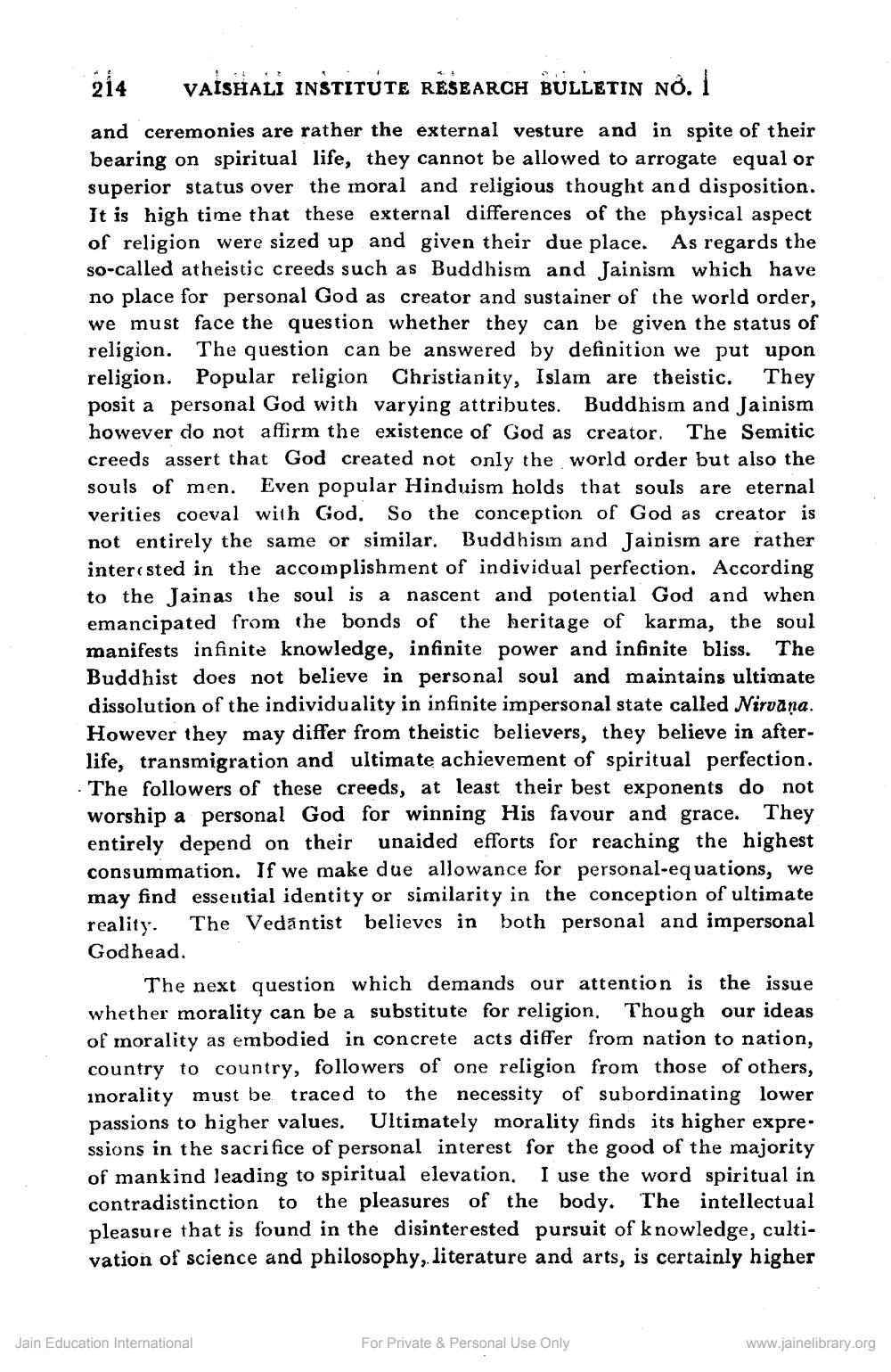________________
214
VAISHALI INSTITUTE RESEARCH BULLETIN NO. 1
and ceremonies are rather the external vesture and in spite of their bearing on spiritual life, they cannot be allowed to arrogate equal or superior status over the moral and religious thought and disposition. It is high time that these external differences of the physical aspect of religion were sized up and given their due place. As regards the so-called atheistic creeds such as Buddhism and Jainism which have no place for personal God as creator and sustainer of the world order, we must face the question whether they can be given the status of religion. The question can be answered by definition we put upon religion. Popular religion Christianity, Islam are theistic. They posit a personal God with varying attributes. Buddhism and Jainism however do not affirm the existence of God as creator. The Semitic creeds assert that God created not only the world order but also the souls of men. Even popular Hinduism holds that souls are eternal verities coeval with God. So the conception of God as creator is not entirely the same or similar. Buddhism and Jainism are rather interested in the accomplishment of individual perfection. According to the Jain as the soul is a nascent and potential God and when emancipated from the bonds of the heritage of karma, the soul manifests infinite knowledge, infinite power and infinite bliss. The Buddhist does not believe in personal soul and maintains ultimate dissolution of the individuality in infinite impersonal state called Nirvana. However they may differ from theistic believers, they believe in afterlife, transmigration and ultimate achievement of spiritual perfection. The followers of these creeds, at least their best exponents do not worship a personal God for winning His favour and grace. They entirely depend on their unaided efforts for reaching the highest consummation. If we make due allowance for personal-equations, we may find essential identity or similarity in the conception of ultimate reality. The Vedantist believes in both personal and impersonal Godhead.
The next question which demands our attention is the issue whether morality can be a substitute for religion. Though our ideas of morality as embodied in concrete acts differ from nation to nation, country to country, followers of one religion from those of others, morality must be traced to the necessity of subordinating lower passions to higher values. Ultimately morality finds its higher expre⚫ ssions in the sacrifice of personal interest for the good of the majority of mankind leading to spiritual elevation. I use the word spiritual in contradistinction to the pleasures of the body. The intellectual pleasure that is found in the disinterested pursuit of knowledge, cultivation of science and philosophy, literature and arts, is certainly higher
Jain Education International
For Private & Personal Use Only
www.jainelibrary.org




